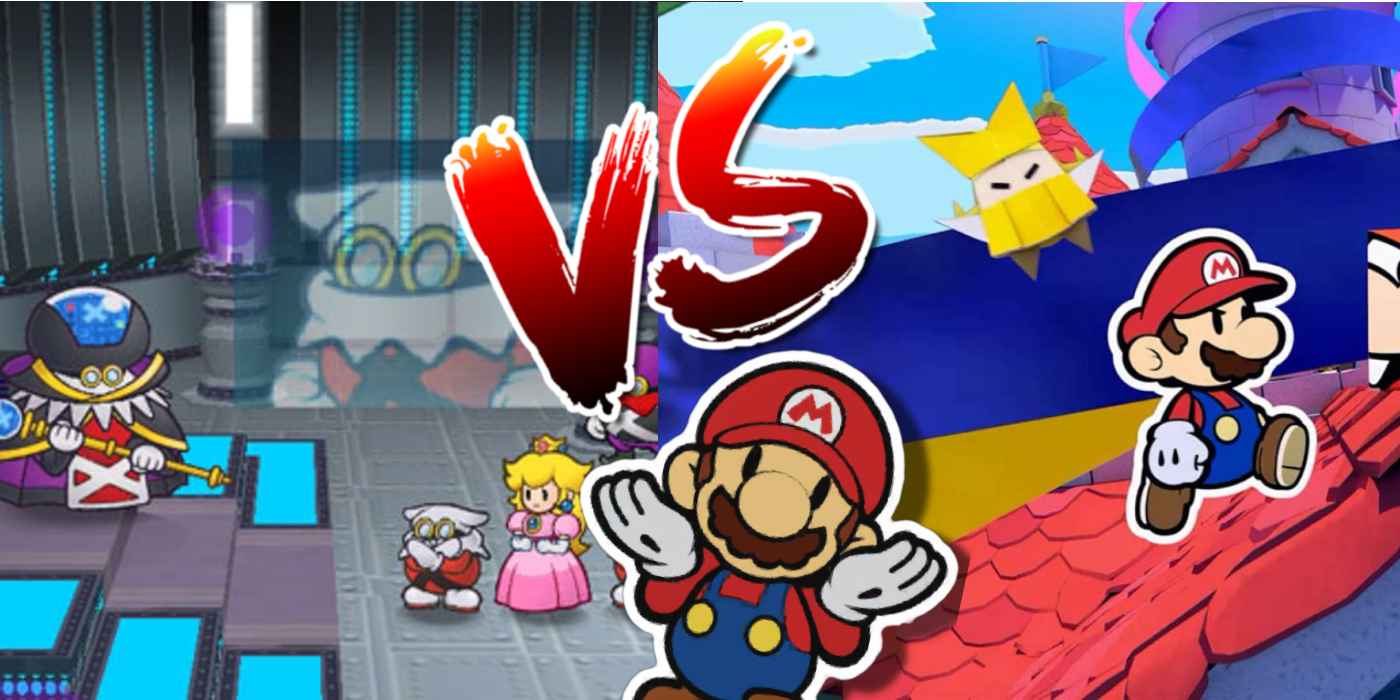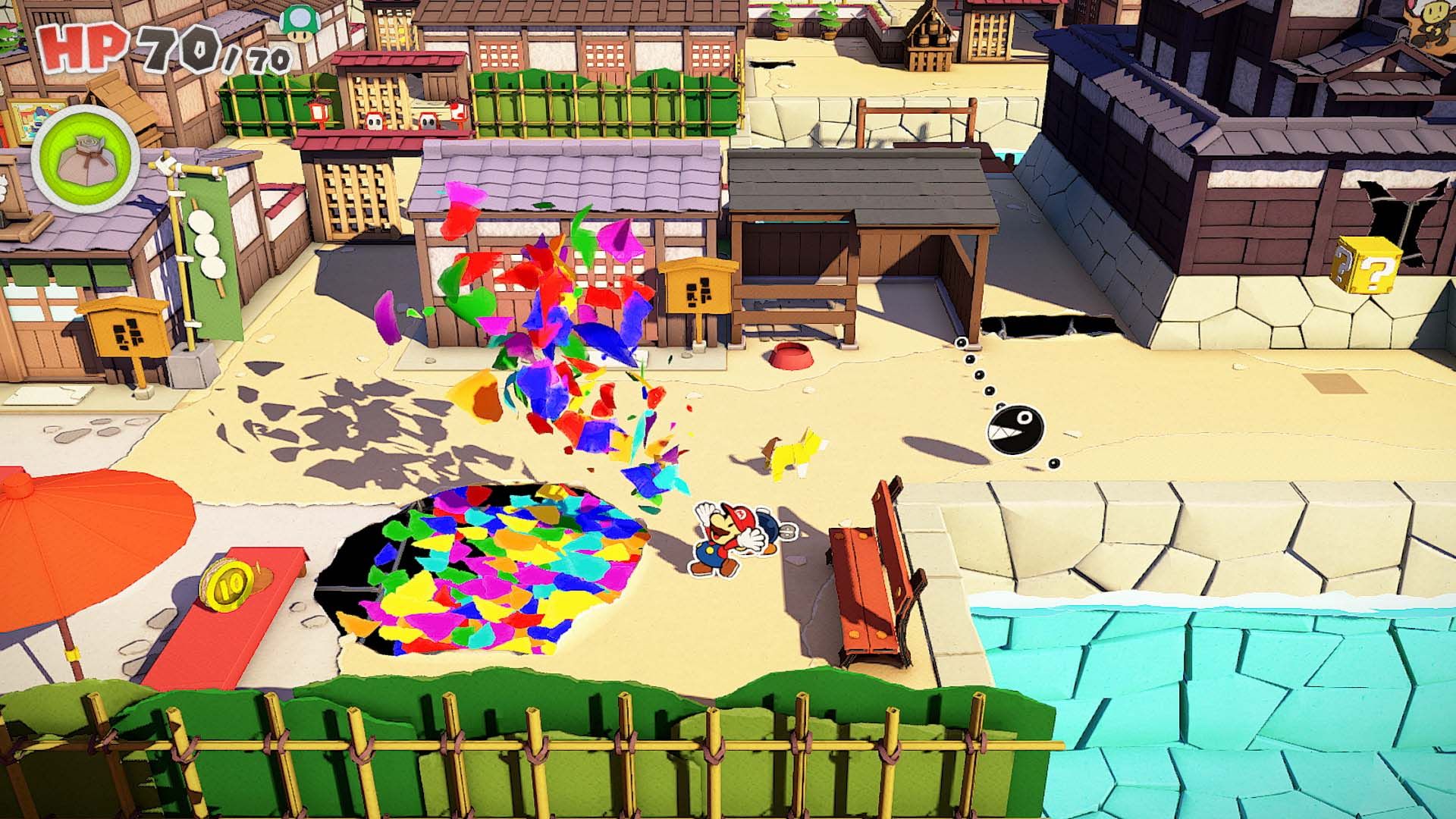Ever since Nintendo dropped the surprise announcement of Paper Mario: The Origami King, fans of the series dissected every bit of its footage to see if the game was a return to the formula from the beloved Paper Mario: The Thousand-Year Door. Each new installment in the franchise has been controversial in some way because they have all deviated from what made the first two games fan favorites, and The Origami King is no exception. Now that the newest entry has released and players have gotten a chance to test it out, fans are debating how The Origami King compares to the GameCube juggernaut.
Returning veterans will likely be relieved to hear The Origami King has finally ditched the infamous card system and instead uses a new ring-based combat system. Players now spin enemies on rings to line them up so they can be taken out in as few attacks as possible. It's a fresh and engaging take on combat that requires a fair amount of thought to efficiently take enemies out while avoiding damage. On the contrary, The Thousand-Year Door's combat offers a traditional Mario RPG style in which players recruit new party members with their own abilities and battle using command prompts. It also features a level-up system with experience points to incentivize battling, which is something the newest Paper Mario entry on the Switch fails to do.
Both Paper Mario games offer huge interconnected worlds to explore with fun and creative environments, but they differ primarily in tone. The Thousand-Year Door is filled to the brim with comedic relief and brilliant writing just like Origami King, but its tone is overall more serious. The characters that Mario meets in his GameCube adventure take their problems more seriously such as Koops' desire to battle Hooktail and avenge his father, or Admiral Bobbery's refusal to set sail after his wife's death.
How The Origami King & Thousand-Year Door Are Different
The Origami King mostly charms its audience with goofy and cutsie moments much like the Earthbound series. It deals a bulk of its jokes via the hidden Toads scattered throughout the land who all say genius one-liners which makes them fun to discover. Its focus on humor makes the game more of an entertaining comedy and this creates a more relaxed experience when compared to The Thousand-Year Door.
The Origami King's biggest advantage over The Thousand-Year Door lies in its boss fights. In these battles, Paper Mario players rotate rings with panels around them to create a path for Mario to approach the foe with. There are always many variables to consider such as lining up double damage or healing panels along the path and stepping on switches to activate the 1000-fold arms panels. These segments show off Origami King's combat at its best because they require a lot of careful planning to make sure that each turn is well spent. The Thousand-Year Door bosses hold their own as creative monsters with unique weak points, but the depth of the new Origami King boss fights outclass the ones found in The Thousand-Year Door.
Since The Origami King uses an improved version of the Sticker Star and Color Splash formula, its no surprise that both it and The Thousand-Year Door have their own specific merits. The Origami King does a stellar job of pumping out constant one-liners and showing off a comedic side of the Mushroom Kingdom. Its new combat system is completely unique and offers a fresh take on turn-based combat that will likely appeal to puzzle lovers. The Thousand-Year Door appeals more to fans of traditional RPGs with its engaging characters, simple yet addicting combat, and its well-paced and memorable story. Both games are worth playing until the end, but The Thousand-Year Door's partner and combat systems, in particular, are more consistently able to maintain their quality than The Origami King, which makes the 2004 masterpiece continue its reign as the champion of the Paper Mario series.


